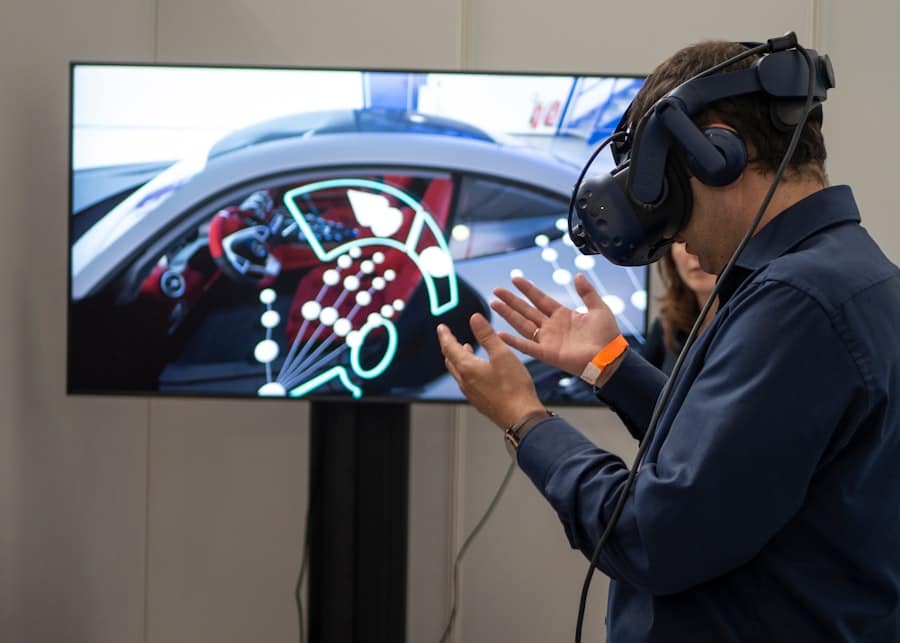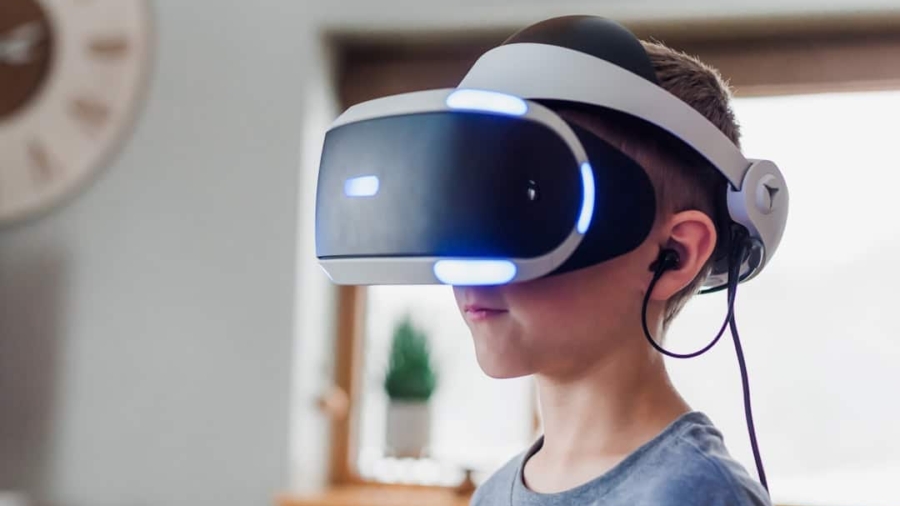Post-Traumatic Stress Disorder (PTSD) is a mental health condition that can develop after an individual has experienced or witnessed a traumatic event. For veterans, the causes of PTSD are often rooted in their military service, which may include exposure to combat, life-threatening situations, or the loss of comrades. The symptoms of PTSD can be debilitating, manifesting as flashbacks, severe anxiety, nightmares, and uncontrollable thoughts about the traumatic event.
These symptoms can significantly impair a veteran’s ability to function in daily life, affecting their relationships, employment, and overall quality of life. The prevalence of PTSD among veterans is alarming; studies indicate that approximately 11-20% of veterans who served in Iraq and Afghanistan experience PTSD in a given year, with rates even higher for those who served in Vietnam. The impact of PTSD on veterans extends beyond the individual; it also affects families and communities.
The stigma surrounding mental health issues can further exacerbate these challenges, as many veterans may feel reluctant to seek help or discuss their experiences. Understanding the complexities of PTSD is crucial for developing effective interventions and support systems.
As society becomes more aware of the mental health challenges faced by veterans, innovative approaches are being explored to provide relief and empowerment, including the use of video games as therapeutic tools.
Key Takeaways
- PTSD has a significant impact on veterans, affecting their mental health and daily functioning
- Games can provide a sense of control and empowerment for veterans with PTSD
- Virtual reality games are being used as exposure therapy for veterans with PTSD
- Multiplayer games can help veterans foster social connections and support
- Using games as a coping mechanism for PTSD may have drawbacks and limitations, such as potential addiction and avoidance of real-world problems
The role of games in providing a sense of control and empowerment for veterans with PTSD
Video games have emerged as a unique medium for addressing mental health issues, particularly for veterans grappling with PTSD. One of the most significant benefits of gaming is its ability to provide players with a sense of control over their environment. In many games, players can make choices that directly influence outcomes, allowing them to experience agency in a way that may feel elusive in real life.
For veterans with PTSD, who often feel overwhelmed by their symptoms and the unpredictability of their emotions, this sense of control can be profoundly empowering. Engaging in gameplay allows them to step into roles where they can confront challenges at their own pace, fostering resilience and self-efficacy. Moreover, games often create immersive worlds that can serve as a temporary escape from the distressing realities of PTSD.
This escapism can be beneficial, as it allows veterans to engage in activities that promote relaxation and enjoyment. The structured nature of games can also provide a distraction from intrusive thoughts and anxiety, offering a reprieve from the constant reminders of trauma. In this way, gaming becomes not just a pastime but a therapeutic outlet that helps veterans navigate their emotional landscapes while fostering a sense of accomplishment through skill development and achievement.
The use of virtual reality games as a form of exposure therapy for veterans with PTSD

Virtual reality (VR) technology has gained traction as an innovative approach to treating PTSD among veterans. VR games can simulate environments and scenarios that evoke memories related to traumatic experiences, making them valuable tools for exposure therapy. This therapeutic technique involves gradually exposing individuals to the sources of their anxiety in a controlled setting, allowing them to process their emotions and reactions without the overwhelming stress that might accompany real-life exposure.
For veterans, VR can recreate combat situations or other stressors in a safe environment, enabling them to confront their fears while being guided by trained professionals. Research has shown promising results regarding the efficacy of VR exposure therapy for veterans with PTSD.
Veterans reported feeling more equipped to handle triggers and stressors after engaging with VR scenarios designed to mimic their traumatic experiences. This method not only helps in desensitizing individuals to their fears but also allows them to develop coping strategies that can be applied in real-world situations. The immersive nature of VR enhances the therapeutic experience by making it more engaging and relatable for veterans.
The benefits of multiplayer games in fostering social connections and support for veterans with PTSD
Multiplayer games offer an additional layer of support for veterans dealing with PTSD by fostering social connections and community engagement. Many veterans experience feelings of isolation due to their struggles with mental health; multiplayer gaming provides an avenue for them to connect with others who may share similar experiences or interests. Through cooperative gameplay or competitive environments, veterans can build friendships and support networks that extend beyond the virtual realm.
These connections can be particularly valuable for those who find it challenging to engage socially in traditional settings. The social aspect of multiplayer games also encourages communication and teamwork, which can help veterans develop essential social skills that may have been impacted by their experiences. Engaging with others in a gaming context allows veterans to practice interacting without the pressures often associated with face-to-face encounters.
Additionally, many gaming communities actively promote inclusivity and support for mental health issues, creating safe spaces where veterans can share their stories and seek advice without fear of judgment. This sense of belonging can significantly enhance a veteran’s emotional well-being and provide a vital support system during challenging times.
The potential drawbacks and limitations of using games as a coping mechanism for veterans with PTSD
While gaming offers numerous benefits for veterans with PTSD, it is essential to acknowledge potential drawbacks and limitations associated with this coping mechanism. One significant concern is the risk of escapism becoming avoidance behavior. While engaging in video games can provide temporary relief from distressing thoughts and emotions, excessive gaming may lead some individuals to withdraw from real-life responsibilities and relationships.
This withdrawal can exacerbate feelings of isolation and hinder the healing process if not balanced with other forms of therapy or social interaction. Additionally, not all games are created equal when it comes to their impact on mental health. Some games may contain violent content or themes that could trigger negative emotions or memories for certain individuals.
It is crucial for veterans to choose games that align with their therapeutic goals and personal comfort levels. Furthermore, while gaming can foster social connections, it may also lead to negative interactions within online communities, such as harassment or toxic behavior, which could further harm a veteran’s mental health rather than help it. Therefore, it is vital for veterans to approach gaming mindfully and seek guidance from mental health professionals when integrating gaming into their coping strategies.
Case studies and success stories of veterans who have found relief and support through gaming

Numerous case studies highlight the positive impact gaming has had on veterans dealing with PTSD. One notable example is that of a veteran named John, who served multiple tours in Iraq and struggled with severe PTSD upon returning home. After participating in a VR exposure therapy program that utilized combat simulations tailored to his experiences, John reported significant improvements in his ability to manage anxiety triggers related to his service.
He found that engaging with VR not only helped him confront his fears but also provided him with a sense of accomplishment as he navigated challenging scenarios successfully. Another success story involves a group of veterans who formed an online gaming community centered around cooperative gameplay in titles like “Call of Duty” and “World of Warcraft.” Through regular gaming sessions, these veterans developed strong bonds that extended beyond the screen; they began sharing their experiences and supporting one another through personal challenges related to PTSD. This community became a lifeline for many members, providing emotional support and camaraderie that helped them feel less isolated in their struggles.
Such stories underscore the potential for gaming to serve as both a therapeutic tool and a means of building meaningful connections among veterans.
The future of gaming as a tool for addressing PTSD in veterans and ongoing research in this area
The future of gaming as a therapeutic tool for addressing PTSD among veterans looks promising as ongoing research continues to explore its efficacy and potential applications. Researchers are investigating various aspects of gaming technology, including augmented reality (AR) and artificial intelligence (AI), to enhance therapeutic experiences further. For instance, AR could allow veterans to engage with therapeutic scenarios in real-world settings while maintaining the safety net provided by guided interventions.
AI-driven games could adapt gameplay based on individual responses, creating personalized experiences that cater specifically to each veteran’s needs. Moreover, collaborations between game developers and mental health professionals are becoming increasingly common as both fields recognize the potential benefits of integrating gaming into therapeutic practices. Initiatives like “Games for Change” aim to create socially impactful games that address mental health issues while promoting awareness and understanding among broader audiences.
As research continues to validate the effectiveness of gaming interventions for PTSD, there is hope that more resources will be allocated toward developing specialized programs tailored specifically for veterans.
Resources and organizations for veterans seeking support through gaming for their PTSD
Veterans seeking support through gaming have access to various resources and organizations dedicated to addressing mental health challenges associated with service-related trauma. One prominent organization is “Stack Up,” which focuses on supporting active-duty service members and veterans through video games and gaming culture. They provide opportunities for veterans to connect through events like “Overwatch” tournaments while also offering resources for mental health support.
Another valuable resource is “Operation Supply Drop,” which provides video game care packages to deployed troops and veterans while promoting community engagement through gaming events. Their initiatives aim to foster connections among veterans while providing them with tools to cope with the challenges they face post-service. Additionally, platforms like “Discord” host numerous veteran-focused communities where individuals can find support through shared interests in gaming.
These online spaces allow veterans to connect with peers who understand their experiences while providing an avenue for discussing mental health openly. As awareness grows regarding the intersection between gaming and mental health support for veterans, more organizations are likely to emerge, further enriching the landscape of resources available for those seeking relief from PTSD through gaming.
There is a fascinating article on

